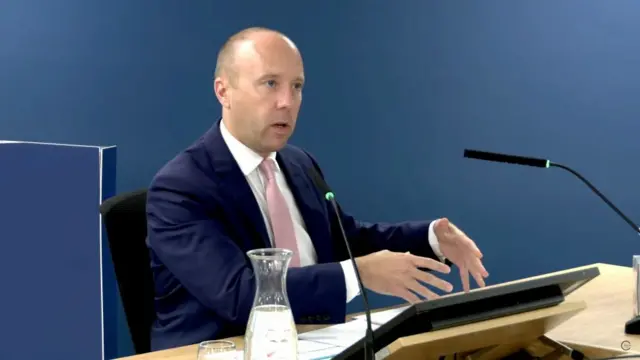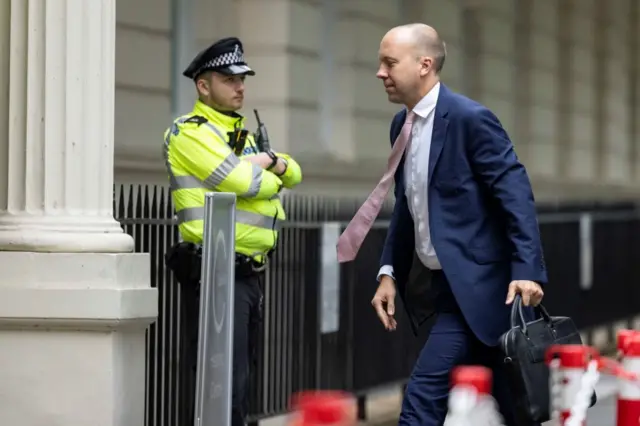Hancock: Social care sector 'badly in need of reform'published at 16:54 British Summer Time 2 July
Judith Burns
Reporting from the inquiry
“Of course we were unbelievably busy, responding to the biggest civil emergency in 100 years,” Hancock told the inquiry as his seventh and likely final appearance drew to a close.
In sometimes tense exchanges he responded to questions from Kate Beattie, representing a disabled people’s organisations (DPO), and Pete Weatherby, barrister for Covid-19 Bereaved Families for Justice UK.
Weatherby asked whether Hancock had used the lack of “levers” available to him to act on Covid at the start of the pandemic as “an excuse for things when they went wrong”.
“This is a very easy thing to say with hindsight,” the former health secretary responded.
“The reality of the situation is that I had to act with the tools that I had and that’s what I did and drove the life-saving effort to make sure things weren’t even worse than they were," Hancock added.
Elsewhere, Hancock described the concept of blanket do-not-resuscitate orders as "abhorrent". He said he only saw this happen once "and we jumped on it".
If it was more widespread, he said: "It did not come to my attention and if it did happen it's totally unacceptable."
He said the social care sector "was badly in need of and remains badly in need of reform”, adding that in the event of another pandemic, he feared the situation had become “worse not better”.
We're now ending our coverage of the UK's Covid inquiry for today. Thank you for joining.

